7 Things You Can’t Do While Hunting Georgia WMAs and 3 Things You Shouldn’t
Hunting Georgia’s Wildlife Management Areas (WMAs) comes with its own set of rules that every public land hunter must be aware of. While these WMAs can provide excellent deer hunting opportunities, it’s important to understand that many activities allowed on private lands may not be permitted on WMAs.
In this article, we’ll cover several key things you legally can’t do on WMAs as well as a few things you shouldn’t do—out of respect for your fellow hunters. Following these guidelines not only ensures you stay on the good side of Mr. Green Jeans, but also helps ensure a safe and enjoyable hunt for everyone involved. And that should always be the first goal of any deer hunt.
Things You Can’t Legally Do
1. You can’t [always] hunt statewide season dates
It’s important to understand that each WMA has it’s own season dates and regulations. In some cases, those seasons may follow the statewide dates, but for most WMAs, they are much more restrictive. It’s unfortunate, and often confusing, but that’s the nature of managing so many different tracks of lands with varying deer densities, habitat, and hunting pressure.
The bottom line here is that you should always pick up a copy of the current Georgia hunting regulations, look up each individual WMA you plan to hunt, and take note of when the area is open for hunting, and any special regulations that may apply.
2. You can’t save your spot
This is one of my biggest pet peeves when it comes to public land hunting. It’s a common sight to see fluorescent survey tape tied to the gates of parking areas or along access trails marking where a hunter (or hunters) plan to hunt. The flagging means absolutely nothing, and does not hold an area for those hunters. In fact, it is against Georgia’s hunting regulations to use flagging or any other means to try to reserve a spot.
Public land hunting is always first come, first served. Leave the flagging tape at home, and simply be the first person to the gate or to your specific spot, and hope other hunters respect that if they happen to walk in on you.
3. You can’t hunt within 50 yards of an open road
This one should come as no surprise to anyone. For the sake of safety, no one can hunt within 50 yards of an open road on a WMA. The key word here is “open”, meaning that it’s open to vehicle traffic.
Roads that are closed to vehicle traffic, such as those behind a gate, do not apply. You can hunt right on those closed roads (although I would not recommend that in most circumstances).
A common mistake among public land hunters that can result in a ticket, is having a loaded firearm within 50 yards of a road, even if you’re just walking to your hunting spot. That is still considered “hunting” and you could be cited. Leave your firearm unloaded (meaning no ammo in the chamber OR magazine) until you get at least 50 yards off the open road, then you can lock and load.
4. You can’t use bait
While baiting for deer is completely legal on private lands across the state, that’s not the case on Georgia’s public lands. The use of any kind of bait is illegal. That goes for feed or mineral — anything that the deer could consume.
Scent attractants that simply attract by smell and are not consumed are legal.
This is a great rule, because it keeps the playing field level on public lands for all hunters, and it keeps hunters from trying to claim an area by putting out bait.
5. You can’t conduct a deer drive
This regulation was passed several years back after a hunter was killed on a Georgia WMA while performing a deer drive. While deer drives can be very effective, they can be disruptive to other public land hunters, and very dangerous if not meticulously planned and executed.
So, leave the deer drives to private land, where everyone involved knows the plan and where everyone else will be.
6. You can’t use an ATV or UTV off open roads
Many new public land hunters are surprised to learn they cannot use any type of ATV or UTV to access the WMA or get a deer out of the woods. For most Georgia WMAs, ATVs and UTVs are only permitted on roads open to vehicle traffic.
Some WMAs prohibit them altogether (again, check the regulations book for specific WMAs). But none allow them off-road for any reason. In most cases, you’re better off to leave them at home.
7. You can’t target practice
This may be surprising to some would-be public land hunters as well. There is no target practice allowed on WMAs other than on established shooting ranges. So you just can’t throw up a target in a field somewhere and sight in your rifle. It has to be done on an actual shooting range.
So, if you’re hunting public land, and your rifle isn’t already dialed in, be sure to plan accordingly.
While this may seem a little harsh or restrictive, it’s really a matter of safety and respect for other hunters using the WMA. If you’re in a stand near the back of a big field, the last thing you want is for someone to be slinging bullets in your direction with no idea you’re there. You also don’t want to have to listen to all that shooting or have your hunt ruined by someone shooting all evening while you’re trying to hunt.
Things You Shouldn’t Do
1. You shouldn’t use survey tape to mark a stand, trail or access point.
I already mentioned that you cannot use survey tape to save an area on the WMA, but the fact is, you should leave the tape home altogether.
As someone who used to manage Georgia WMAs, I know first-hand that very few hunters bother to take that tape down after the hunt. So it ends up being unsightly litter.
With the technology available today at most everyone’s fingertips, there’s no need to use ribbon to mark your way into a hunting spot. Use one of the many mapping apps available on the market today, or go old school with a map and compass.
But let’s keep Georgia’s public lands litter free by leaving the survey tape or other markers at home.
2. You shouldn’t encroach on another hunter
It blows my mind to even have to say this, but if you get to an area you planned to hunt, and someone else is there, do the right thing and go somewhere else. I don’t care how much you’ve scouted the area, how many trail camera photos you have, or if you already have a stand hanging in the area, you got beat.
Be respectful and go to plan B. And if you’re going to be a public land hunter, you should always have a plan B, C, and probably D.
Again, public land hunting is first come, first served, so if you really have a spot you want to hunt, make sure you’re the first one there.
3. You shouldn’t come in late or leave early when other hunters are in the area
I understand things come up, and sometimes you may have to leave a stand early, or you may get to an area later than you planned. But be respectful of other hunters, and try not to walk around, especially past another hunter, during prime deer movement times – dawn and dusk.
If you must leave or come in late, and you know someone is hunting in the area, take the long way around to avoid messing up their hunt.
This all goes back to respect and the golden rule. You wouldn’t want someone messing up your hunt, so do your best not to mess up theirs.


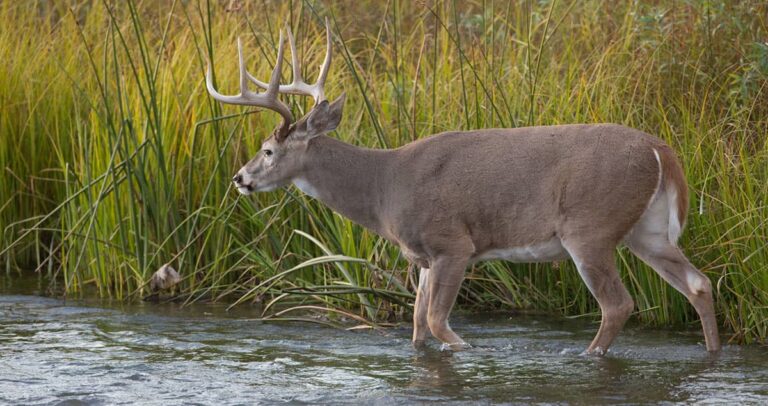
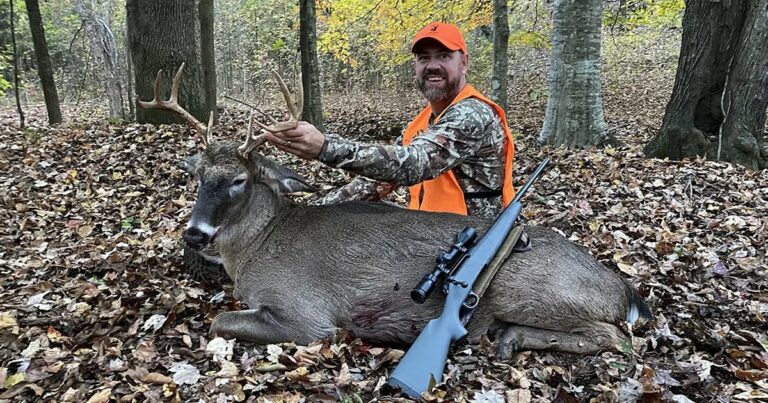
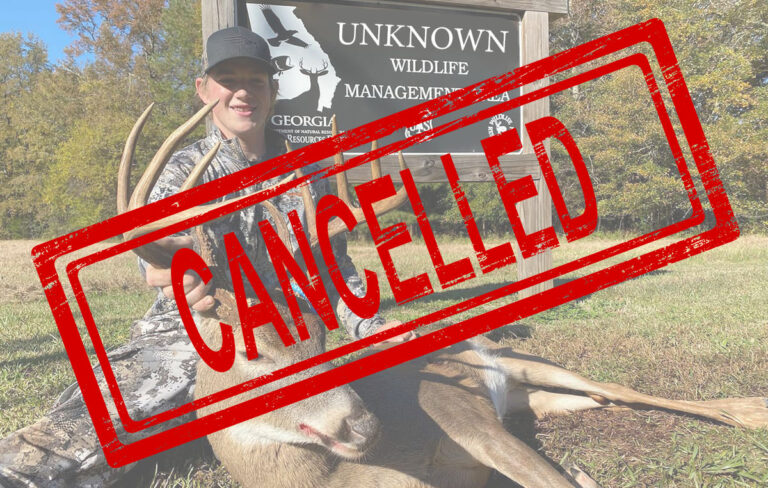
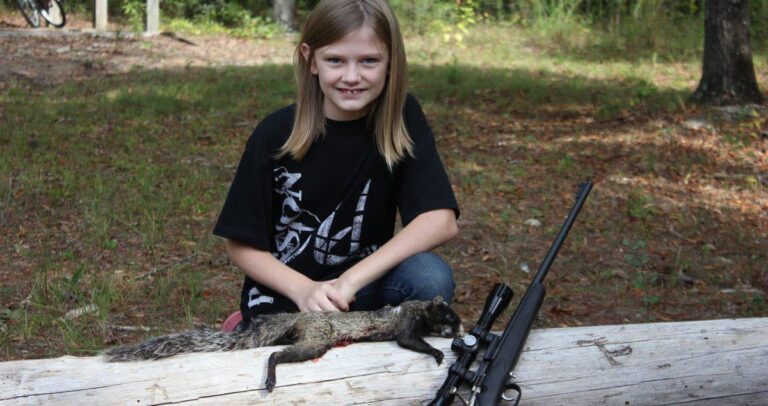
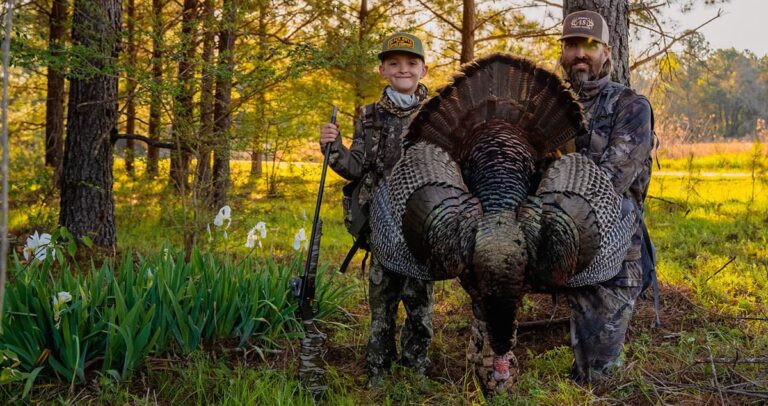
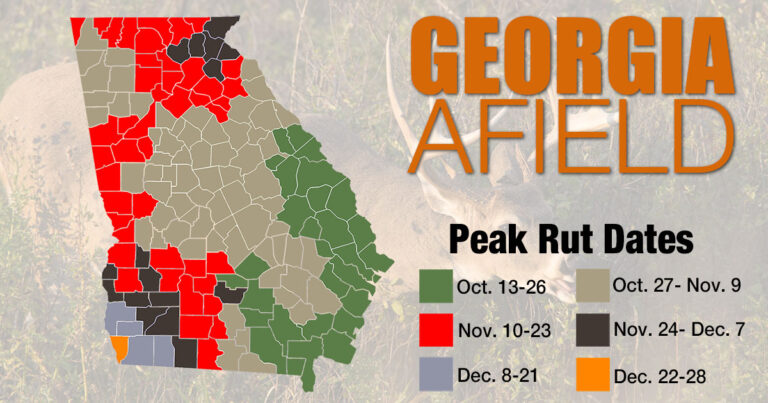
You should never get into or climb another person’s stand or blind. Just because it is on public land someone’s stand , camera , or truck, or camping gear is not yours to steal.!!
We agree Bob! Just because it’s legal (using someone else’s stand on public), doesn’t make it ethical.
by law you are not allowed to leave your deer stand on WMA if someone else is in it hunting your stand there is nothing no onw xan do about it. n if your stand gets tooking there nothing no one can do about it.
As a former DNR employee, that is incorrect. You can leave a stand for the duration of a hunt, whether that’s a 3-day gun hunt or the entire deer season (provided the WMA is open for the entire deer season). You are correct that someone else can hunt the stand, but if it gets taken, that is theft and you can report it like you would any other theft. Leaving your stand out on public land does not give anyone the right to take it.